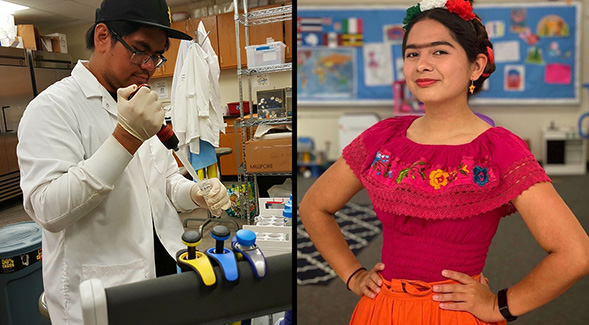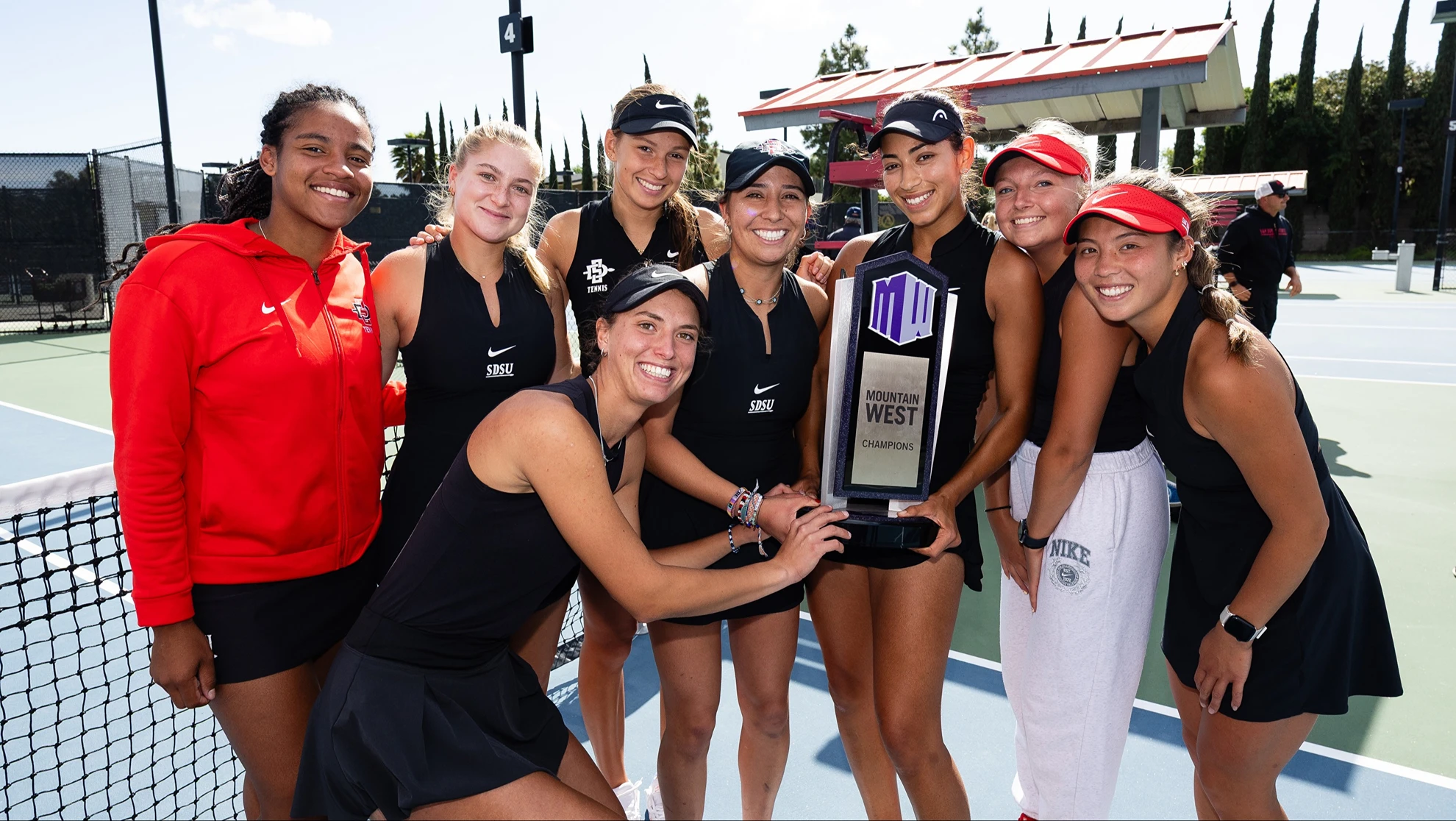Student Fulbright Program Accepts Two SDSU Applicants
Recent graduates will teach English to children in Brazil and pursue a study/research project in Trinidad and Tobago.

San Diego State University’s two new Fulbright U.S. Student Program participants both were inspired by key memories from childhood.
Brenda Arellano hopes to help kids in Brazil overcome the language barriers that sometimes left her in tears as a first grader. Federick Pinongcos is heading to a Caribbean nation to study a sustainable wastewater treatment project, an interest that stems from the pollution he witnessed growing up in the Philippines.
The selection of the two recent graduates for the 2021-22 program makes a total of 94 SDSU students awarded student Fulbright grants since 2005-06.
Operated by the U.S. Department of State to promote cultural exchange, the Fulbright program provides grants for international study/research projects and work as English teaching assistants. Both Arellano and Pinongcos will also participate in community-involvement projects.
Nancy Marlin, SDSU provost emerita and Fulbright advisor, said the program is “highly prestigious and extraordinarily competitive.”
“Preparing a Fulbright application is an arduous process and our students have worked on revising their applications numerous times over many months,” said Marlin, a professor of psychology. “I am extraordinarily proud of all our applicants and I am especially grateful to our many faculty who support this level of student success by encouraging students to apply, writing their letters of recommendation, providing them feedback on their proposed projects, and participating in their on-campus interviews.”
Here is a look at each student and the proposals they submitted for their grants:
Brenda Arellano
Arellano, a May 2019 graduate of the School of Communication, has been teaching herself Portuguese for more than a year and a half in preparation for her upcoming assignment teaching English in Brazil. She plans to spend an academic year there beginning in early 2022.
“I’ve been teaching English to international students in various countries throughout my life,” she wrote in her grant proposal, “and I genuinely love it because it allows me to learn about new cultures.”
Her passion for teaching English stems from her own experiences as a young student.
The first years of school were tough for Arellano, being raised by a single mom and speaking Spanish in a Mexican immigrant household in Marin County. Still vivid is the memory of a first-grade teacher in a private Catholic school, screaming at her for failing to follow instructions conveyed to her in what was then incomprehensible English.
Her mastery of the language came about in time to earn straight A’s and a scholarship to a private high school. Her mother started taking her along to volunteer work tutoring the children in an immigrant family from Guatemala, and “this helped spark my interest in teaching English as a career path,” she said.
Currently completing a master’s degree in education at San Francisco State University, Arellano taught English in rural Thailand during a study abroad experience, using gestures and pictures to overcome yet another language barrier with the students and faculty.
She decided on Brazil for a Fulbright program project after connecting online with two students, from São Paulo and Curitiba.
Besides teaching, she plans to pursue another passion: martial arts. Arellano holds a black belt in karate and kick-boxing and wants to lead a self-defense class for women.
Remembering again her own school experience, Arellano said: “I think that little girl would be proud of who I have become.”
Federick Pinongcos
Pinongcos, who graduated in December 2020 with a master’s degree in civil engineering, is heading to the dual-island nation of Trinidad and Tobago for a project that could help radically reform wastewater treatment in the remote, developing region He expects to spend eight months there beginning in the fall.
The project follows a similar summer undergraduate research experience in Durban, South Africa. Research on a decentralized wastewater treatment system “made me realize that different countries have different environmental issues and ways of tackling them,” Pinongcos wrote in his Fulbright application.
“The people I collaborated with in this project taught me to always seek for a more sustainable solution and inspired me to be an environment advocate,” he said.
It’s an interest also developed in part from exposure both to polluted waterways in the Philippines and the banks of the San Diego River in Mission Valley, where Pinongcos volunteered for cleanups, assisted in water quality monitoring and engaged with the desperate lives of the homeless population there.
He worked on a grant proposal to provide sanitation systems and while it wasn’t approved, it motivated him to apply for the Fulbright Fellowship in the related field of sustainable wastewater treatment.
Pinongcos will work on his project as part of a team of professors from the University of the West Indies. He’ll be studying the use of vetiver grass, a resilient plant already in widespread use in soil erosion control, as a means to remove heavy metals (lead, iron, zinc) and nutrients (nitrate, phosphate) from industrial wastewater, which in Trinidad has a heavy petroleum content.
It’s not all hard science. Pinongcos said community events will educate residents on potential commercial uses of vetiver grass, such as essential oils, soap and baskets.
“I’ve always wanted to work on a small, developing and sustainable country,” Pinongcos said. “I am grateful to Fulbright for allowing me to accomplish one of my goals, which is to be a part of a sustainable project and be an advocate for the environment. In addition to this I think it would be a great opportunity to inspire young Trinbagonians to pursue STEM.”
Students can visit the SDSU Fulbright program website to learn more about the upcoming application cycle, information sessions and writing workshops the university offers.



